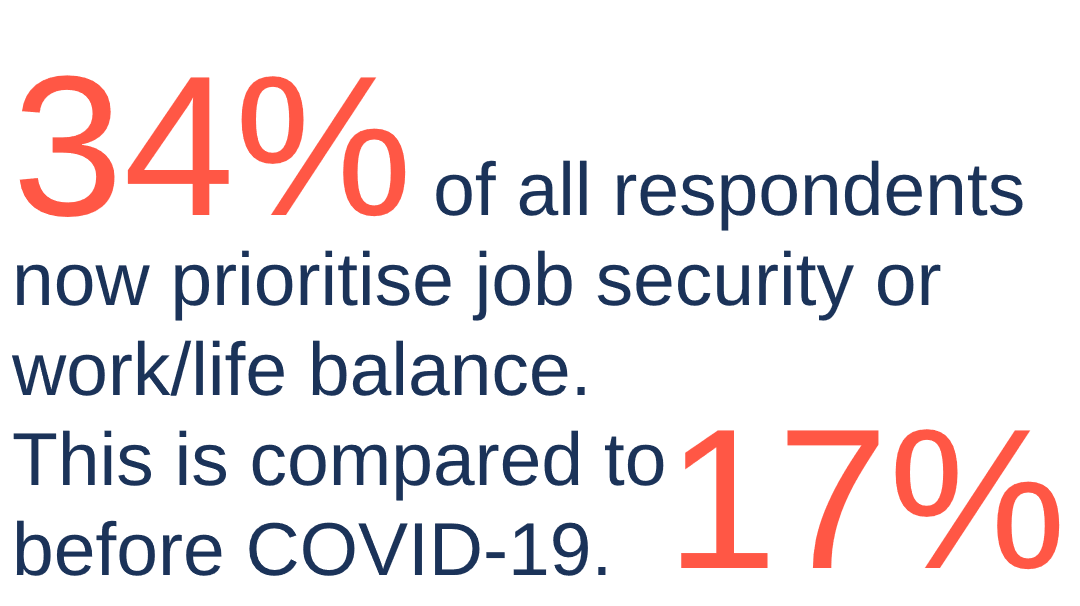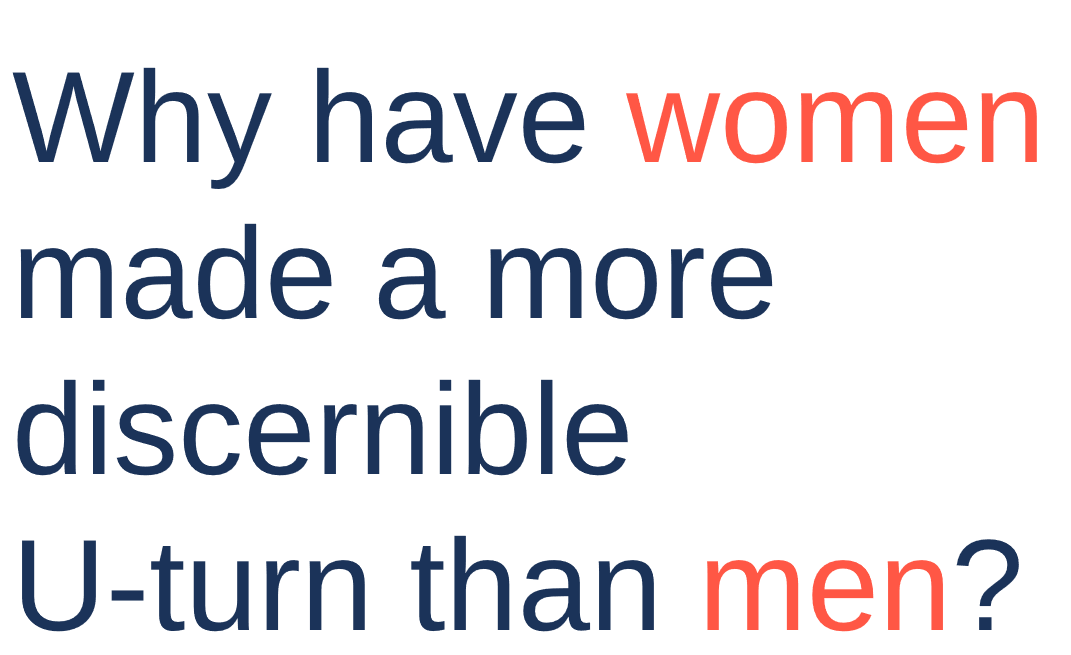How has COVID-19 affected career priorities?
When creating our survey in March 2021, we were specifically interested in understanding how the last 12 months has affected career priorities for professionals.
It seemed logical that increased uncertainty around employment and changes in work patterns, would have led many individuals to reconsider the driving force behind their career decisions.
As the graph on the right shows, there has been a dramatic reconsideration from professionals because of COVID-19 in how they now make career-based decisions. With 56% of respondents saying that the pandemic has changed what they consider most important when making decisions about their career.
That is a significant shift in the professional landscape in just 12 months, people are reconsidering career priorities that have potentially been decades in the making.
By diving into these findings further, we can begin to get a better understanding of what changed.
Looking for something in particular? Skip ahead using the links below:
Money isn't everything
The most intriguing thematic takeaway from this set of results is the clear movement away from financial and progression-driven priorities to a more mindful value in job security and work/life balance.
As we can see, 62% of those who have changed their career priorities because of COVID-19 now rank job security or work/life balance as their most important career considerations.
In fact, double the number of total respondents now value job security or work/life balance as their biggest priority compared to before the pandemic (34% compared to 17%).
The increased importance placed on job security, up from 14% to 34%, is understandable. The uncertainty of last 12 months has made people more aware of the value of stability in their career, rather than necessarily maximising their earnings.
Next let's consider the professionals who now prioritise work/life balance. An amazing 74% of respondents who said this was their biggest priority are aged between 35 and 54.
.png)
It is reasonable to assume that many of these respondents have children who live at home. The absence of commutes and long days in the office over the last year has perhaps shown the value of quality time at home. In comparison to their previous priorities of pursuing promotions and salary increases.
Overall, these results indicate a staggering turnaround. When we examine this change by gender the findings become even more thought-provoking.
Why don't women prioritise salary or progression anymore?
In the graph above we can see that women (38%) identify work/life balance as their main career consideration in the aftermath of COVID-19. This is a significant increase on the 12% of women who ranked work/life balance as their priority before COVID-19.
In fact, before the pandemic 76% of women considered salary (31%) or progression (44%) as their career priority. In March 2021, the number of women who still considered salary or career progression to be their priority had fallen to just 18%. This is an astonishing shift in priorities.
The findings from male respondents have some similarities to this. Before COVID-19 male respondents were also most likely to identify progression as their career priority (41%) and a further 17% ranked salary highest.
This has now flipped, with men now most likely to consider job security (36%) and work/life balance (26%) as their most important consideration. The combined 58% of men who responded with salary or progression from March 2020, has now fallen to just 23% (salary 13%, progression 10%).
A possible cause of what seems like a clear gender divide is the relative age of our female respondents. Of our female respondents, 23% are under the age of 35, compared to only 12% of male respondents.
If we consider that pre-COVID-19 a younger professional would have been more likely to prioritise salary and progression compared to a more senior professional.
.png)
Now, if we look at those who said job security or work/life balance was now
their priority by age, we can see that 23% of male respondents and 33% of female respondents were under 35. A much narrower gap between the genders. What initially appears to be a gender divide in priorities is perhaps more of a generational divide.
Maybe it's just a phase
The findings from this section certainly paint a picture of broadly changing career priorities for professionals working in a range of sectors.
However, this data was collected in what will hopefully prove to be the final stages of a global pandemic. A year of upheaval such as this is undoubtedly going to cause many to review their priorities going forward.
Perhaps the most intriguing question here is how long this more mindful approach from most of our respondents to career priorities will last. Once the uncertainty of COVID-19 has diminished and life is largely back to normal, would these professionals still be valuing job security and work/life balance above salary and progression?
It is surprising how quickly we forget and move on once an immediate danger has passed.
Share on social media!
To gather the findings included in this report, The Pay Index ran two unincentivised surveys, one in March 2020 and another in March 2021.
The first survey in March 2020 received 1,322 responses.
The second survey in March 2021 received 606 responses.
The surveys were promoted using a variety of platforms to broaden the spectrum of respondents, including email marketing, LinkedIn and Twitter.
Each respondent maintained complete anonymity throughout the process. The only identifiable piece of data we hold is the optional inclusion of an individual's email address, only if they wished to be notified about the survey's findings.
A copy of both sets of survey questions can be provided upon request.
How much does it cost?
The Pay Index is free to use
Gain immediate access to a range of interactive global compensation reports for your job function.